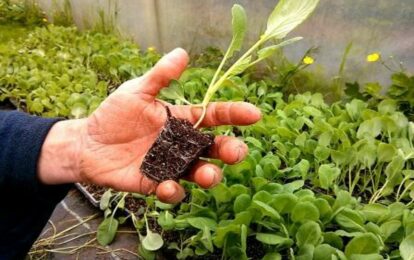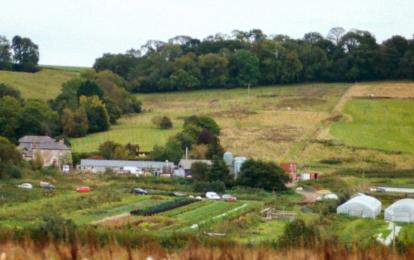ORFC 2026 8 – 9 Jan
ORFC 2026 8 – 9 Jan
With farming policy deferred to the nations, and a Welsh government that has put a renewed emphasis on building a sustainable and vibrant local food production environment, are there lessons to be learned from Wales? This session considers why new enterprises are emerging today, and how horticultural enterprises can champion local, regional and national identity.
Nature is being financialised. From climate change mitigation to the biodiversity crisis, mainstream environmentalism is turning towards nature commodification as the solution. The hope is that private investors and state actors will release badly needed resources into ‘nature positive solutions’ - if that exercise returns a profit.
Join Plantlife for a meadow-making workshop. Participants will learn how to create or restore a wildflower meadow on their land, and learn about the value of meadows and other species-rich grasslands for nature, sustainable farming, carbon storage and climate change resilience.
It is no longer enough to simply conserve what we have. The living ecosystems that sustain us are unravelling, and are in urgent need of restoration. In this need, humanity can find a new role as 're-weavers' of diversity; a keystone species for ecological resurgence. Taking up this new mantle will require us to undo not only the ecological harms of industrial colonialism, but also the psychological, social and political damage that has caused us…
This is a follow-on session from Thursday’s workshop in the Story Museum’s Magic Common Room. The workshop will be limited to 12 places for those who have attended the previous session on systemic mapping and would like to deepen their understanding.
In this session, Claire Ratinon and Rachel Solnick will discuss their two very different experiences of identity, diaspora and displacement in relation to land work. Chaired by Jo Kamal, this conversation will see where Claire’s Mauritian Kreyol heritage and Rachel’s Jewish Diasporist identity converge in order to explore what it means to work the land when our ancestral relationship to the earth has been disrupted and how diasporic peoples might - in reclaiming the role…
The last decade has seen strides made in sales of peat-free growing media in amateur horticulture, though voluntary targets set by the government failed to mobilise the industry to phase out sales by 2020. In commercial organic horticulture, a voluntary target has been set to end the use of peat in growing media by 2024, ahead of Defra’s 2028 target for professional horticulture. However, the challenge remains to find affordable alternatives with the physical and…

The shift away from area-based agricultural subsidies has been a welcome transition to those who recognise the flaws in a system which has essentially rewarded farmers and landowners for owning large amounts of land. As we embark on new farming subsidy policies in Wales, Scotland, Ireland and England, which will instead incentivise farmers to adopt more sustainable farming practices, the question remains of where small farms - including market gardens, crofts, and urban and peri-urban…

Hemp could become a key element of regenerative farming. There are thousands of potential uses for the fibre, woody core and seeds. It sequesters carbon faster than any other crop, and this carbon can be locked up, for example, into innovative construction products.